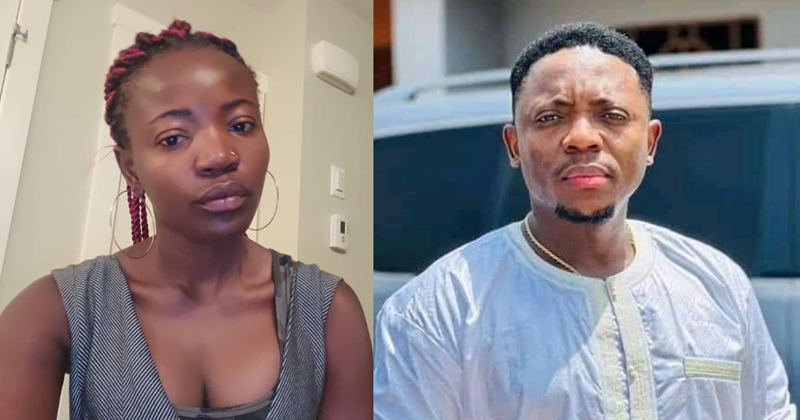In a surprising turn of events in Sierra Leone, social media personality Hawa Hunt has been detained and charged by the government for cyberbullying President Julius Maada Bio and his wife, Fatima Bio.
This incident has sparked a debate about freedom of expression versus accountability, especially given the recent actions of another controversial figure, Mr. Kadiru Kai Kai.
In July 2024, President Bio publicly distanced the Sierra Leone People’s Party (SLPP) from Kai Kai, a politician who threatened to unleash a “big war” in Sierra Leone if he did not become president by 2028.
His remarks, which many in the country interpreted as deeply unsettling, raised questions about his intentions and the safety of the nation. Despite the severity of his threats, Kai Kai was detained for a brief period of three days before he issued an official apology and was released.
In stark contrast, Hawa Hunt’s case draws a line in the sand for many Sierra Leoneans. Hunt, known for her outspoken views and pointed criticisms, had recently shared a 24-minute video addressing the arrest of another reality figure, Ms. Zainab Sheriff, painting a dire picture of the current economic climate and alleged extrajudicial killings targeting supporters of the opposition All People’s Congress (APC). Throughout the video, Hunt utilized harsh and abusive language directed toward President Bio and his wife.
The central question brewing in the minds of many citizens and observers is: Why has Kadiru Kai Kai, who threatened the peace of the nation with war, been allowed to walk free while Hawa Hunt remains in detention? This discrepancy highlights potential biases within the practices of law enforcement and governmental response to political dissent.
The detention of Hawa Hunt raises critical issues surrounding the freedom of speech in Sierra Leone, particularly within the context of political criticism. Are citizens allowed to voice their grievances against perceived governmental injustices without fear of repercussion? Or are they subject to the whims of those in power, leading to selective enforcement based on political affiliations and influences?
Many observers argue that if Kai Kai’s threats can be downplayed and forgiven through an apology, then Hunt’s criticisms—however abrasive—should similarly be viewed in the context of frustration with the current administration’s policies and actions. The inconsistent application of justice serves to undermine the integrity of the legal system and raises concerns about protecting individual rights in the face of authoritarian tendencies.
Moreover, Hawa Hunt’s situation brings attention to the increasing use of laws concerning cyberbullying and defamation in the digital age. As social media platforms become battlegrounds for political discourse, it is vital to consider how governments choose to regulate this space. Will they enable open dialogue and political critique, or will they use it as a tool to suppress dissent and control narratives?
The unfolding of these events will undoubtedly continue to draw scrutiny from the public and watchdog organizations alike. As we observe the outcomes of Hunt and Kai Kai’s cases, it is crucial to engage in dialogue about the protections afforded to citizens in democratic societies, particularly in Sierra Leone, where the struggle for political expression battles against the backdrop of historical conflict and societal unrest.
In conclusion, the stark contrast between the treatments of Hawa Hunt and Kadiru Kai Kai encapsulates the ongoing challenge faced by Sierra Leone as it navigates its political landscape. It brings to light inquiries into the principles of justice, accountability, and freedom of expression, which are essential for a thriving democracy. As the nation watches, the hope for a fair and just resolution remains paramount












Kadiru isn’t the first person to say so.
Ernest Bai Koroma said so in 2007. Samura Kamara said so in 2023. Ernest Koroma plotted a coup to overthrow president Bio he ran away lying that he is sick.
Here is an open space for credible information not assumption. Before posting, please make a citation of your own research so that others with little knowledge might learn. Thank you
This is the only country where your right can be turned into a double wrong when you do not politically belong or financially belong…
It’s clear to everyone that what she did was wrong(by directly insulting the president and his wife publicly). However, many have done and are still doing far worse than she did, but they have never been placed under such punishments.
“D way trial en political hate don poil dis con3 na only God go help.
Den go only judge u bad en good doings now base on u political en tribal association”
If you are not happy with the actions taken by government against Hawa Hunt, drink poison and die or better still, go hang yourself in the bush.
Insulting someone publicly calling her name repeatedly is a gross indiscipline and manifestation of unbrought upness in her own family and a prostitute behaviour she portrayed. She had learned her lessons the hard way
One of our major problem as citizens is that we fail to look at the bigger picture and only focus on mere views.
The issue of concern here is, what’s the point of allowing Mr. Kai Kai to go unaccounted and still hold Hawa accountable for cyber bullying?